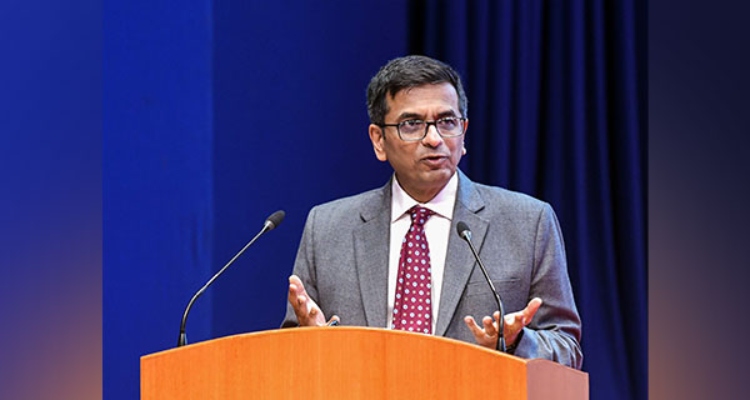
Chief Justice of India DY Chandrachud emphasized the vital role of Bar Associations, particularly the Supreme Court Advocates on Record Association (SCAORA), in bridging the gap between the judiciary and stakeholders during his address at the inaugural SCAORA International Legal Conference.
He highlighted that Advocates on Record (AoRs) are essential to the smooth functioning of the Supreme Court, likening them to the oil that keeps the judicial machinery running efficiently.
“The Bar and the bench are complementary to each other,” CJI Chandrachud remarked. “We are mutual beneficiaries and here to learn from one another, working towards a stronger, independent judiciary.”
Since taking office, CJI Chandrachud has aimed to transform the Supreme Court into a “people’s court.” He noted that the court has embraced technology to streamline processes such as e-filing and obtaining court passes.
However, he stressed that lasting institutional progress depends on an enduring ecosystem rather than individual efforts. He explained that the system of appointing AoRs was designed to ensure enduring standards of competence and erudition before the Supreme Court.
The CJI underscored the importance of AoRs in the court’s administrative and judicial decision-making processes, stating, “We rely heavily on the ability of AoRs to draft and ensure comprehensive representation of their clients.” He explained that AoRs are custodians of cases, responsible for ensuring that documents are properly drafted, explained clearly, and filed without defects.
Moreover, they serve as a vital link between clients and the court, keeping both informed about each other’s developments.
CJI Chandrachud also pointed out that AoRs play a critical role in enhancing access to the Supreme Court for litigants and lawyers. “Most litigants have no one to turn to other than their AoR for timely updates,” he said, acknowledging that many common procedures remain unfamiliar to them.
While the Supreme Court has made strides to improve accessibility, the role of AoRs remains crucial in ensuring a user-friendly experience, especially in the context of transitioning to digital procedures.
Additionally, the Chief Justice reflected on his initiative in 2022 to assess the living costs for junior lawyers in Delhi, including expenses for housing, food, and travel.
His aim was to recommend fair remuneration for law clerks. He noted that upon assuming office, the process for selecting law clerks was streamlined, and their compensation increased.
“I urge those here who have made immeasurable contributions to the Supreme Court to extend the same courtesy to their juniors,” he said, emphasizing that the advancement of the legal profession is linked to the well-being of the junior bar.




